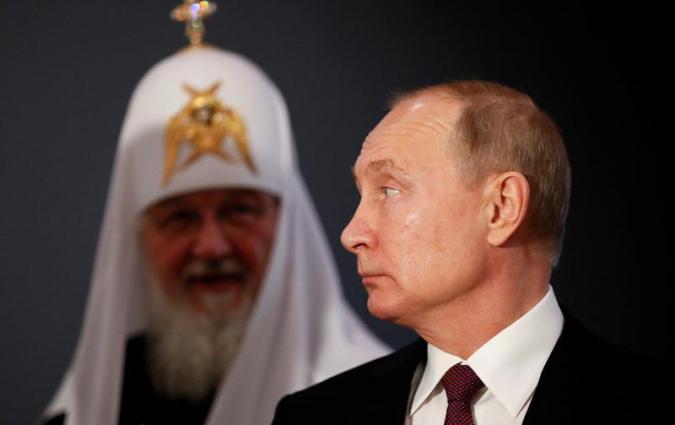In this piece
Still listening: audience strategies of Russia-focused media in exile

Journalist fellow Maria Kiseleva presents her findings at the Hilary 2025 Showcase in Oxford. Credit: John Cairns
In this piece
How media in exile use inference as analytics | Shifting platforms and decentralised strategies | Audience feedback: who speaks up and what they want | Emotional fatigue and selective engagement | Legal threats and ethical dilemmas | Evolving genres and new formats | ConclusionThree years after Russia’s full-scale invasion of Ukraine triggered a mass exodus of independent journalists, many media outlets operating in exile still regard the domestic Russian audience as their primary focus. But censorship, blocked websites, the use of VPNs, and the volatile political climate all make it difficult to measure whether that audience is still listening – or how to reach them if they are.
This summary draws on over 10 interviews with journalists and editors, as well as research by the JX Fund, Thomson Reuters Foundation, Levada Center and other high-profile researchers of Russian media in exile and wartime Russian society. The interviews took place between November 2024 and February 2025, and the project was written in March 2025.
How media in exile use inference as analytics
While a global Russian-speaking diaspora has formed since the invasion, journalists at outlets like TV Rain, Current Time, and 7x7 continue to view their audience inside Russia as their central mission. Yet data about who is watching or reading is increasingly murky.
Digital censorship, mass blocking of websites, and the widespread use of VPNs make it almost impossible to geolocate audiences accurately. Analytics tools such as Google Analytics or Adobe Analytics now offer only rough estimates, and indirect data (like language settings or other followed channels on Telegram) must be used to infer a user’s location. For example, according to Meduza, the fact that their Telegram channel is ineligible for monetisation due to a high percentage of Russian users is taken as evidence that most of their subscribers are still based in Russia.
Shifting platforms and decentralised strategies
As news aggregators like Yandex.News redirect users to pro-Kremlin outlets, and platforms like Facebook and X (formerly Twitter) are blocked, exiled media have had to adjust their strategies. Telegram and YouTube have become essential lifelines.
YouTube has proven particularly critical, especially for breaking news. TV Rain and Current Time both reported major spikes in traffic during key moments such as Russia's mobilisation in September 2022. But recent throttling of YouTube access inside Russia has made it harder to assess reach. Journalist Alexander Plyushchev noted a sharp drop in views from Russia, which he attributes not to actual loss of audience but to VPN rerouting to avoid the censorship..
Some outlets, like TV Rain, have responded by building tools like the Potok Chrome extension to bypass YouTube slowdowns. Others use nthLink and mirror sites to distribute content.
Audience feedback: who speaks up and what they want
Feedback from audiences is typically skewed toward loyal, engaged users. That can create blind spots, but also offers valuable insight. The regional newsroom 7x7 uses bots, Telegram chats, surveys, and newsletters to gather feedback. One theme was clear: audiences want more coverage of regional issues, and resent the dominance of Moscow-focused stories.
In contrast, TV Rain’s audience often complains of negativity: “Enough about the war,” some say. Presenter Ekaterina Kotrikadze said they hear requests to return to being an "optimistic channel." But she said this isn’t realistic: “You can't be an optimistic channel when people are being killed every day, and it's your country's army doing it.”
Emotional fatigue and selective engagement
Research by the Levada Center and PS-Lab shows that both war opponents and non-opponents in Russia tend to distrust all news sources. Many cite emotional exhaustion and reduce their media consumption as a coping strategy. Even opposition-minded Russians may withdraw from news altogether to protect their mental health.
This disengagement has consequences. Readers want outlets to reflect their views – or at least to feel "on their side" – but war coverage, even when critical, may still feel overwhelming. As one interviewee in Irkutsk put it: “There’s no one on our side at all.”
Legal threats and ethical dilemmas
Media labelled as “foreign agents” or “undesirable organisations” face serious risks. Sharing content from these outlets can lead to prosecution. Even within Russia, being associated with such media can result in fines or criminal charges.
This legal landscape affects not only audience behaviour but also editorial strategy. Many outlets have pulled all staff out of Russia. Others rely on anonymous freelancers or use proxy journalism, in which journalists outside the country coordinate with fixers and sources inside it.
Evolving genres and new formats
In response to these pressures, media outlets have adopted new approaches:
-
Proxy journalism: Gathering material via intermediaries inside Russia
-
Open-source investigations: Mining VKontakte (VK, a Russian social networking service) groups, obituaries, and satellite data to verify facts
-
Community listening: Tracking Telegram and VK comments to find story leads
-
Cross-platform storytelling: Adapting content for Telegram, YouTube, newsletters, and mirror sites
Projects like Charon by iStories use AI to track Russian military losses via open data. Others, like Mediazona, collaborate with the BBC Russian Service to document casualties.
Conclusion
Despite growing censorship, emotional fatigue, and audience fragmentation, exiled Russian journalists continue to report with integrity and innovation. They do so for an audience they can no longer see clearly, but one they still believe is listening.
That belief – that someone inside Russia is reading, watching, and thinking – remains at the heart of their work.




